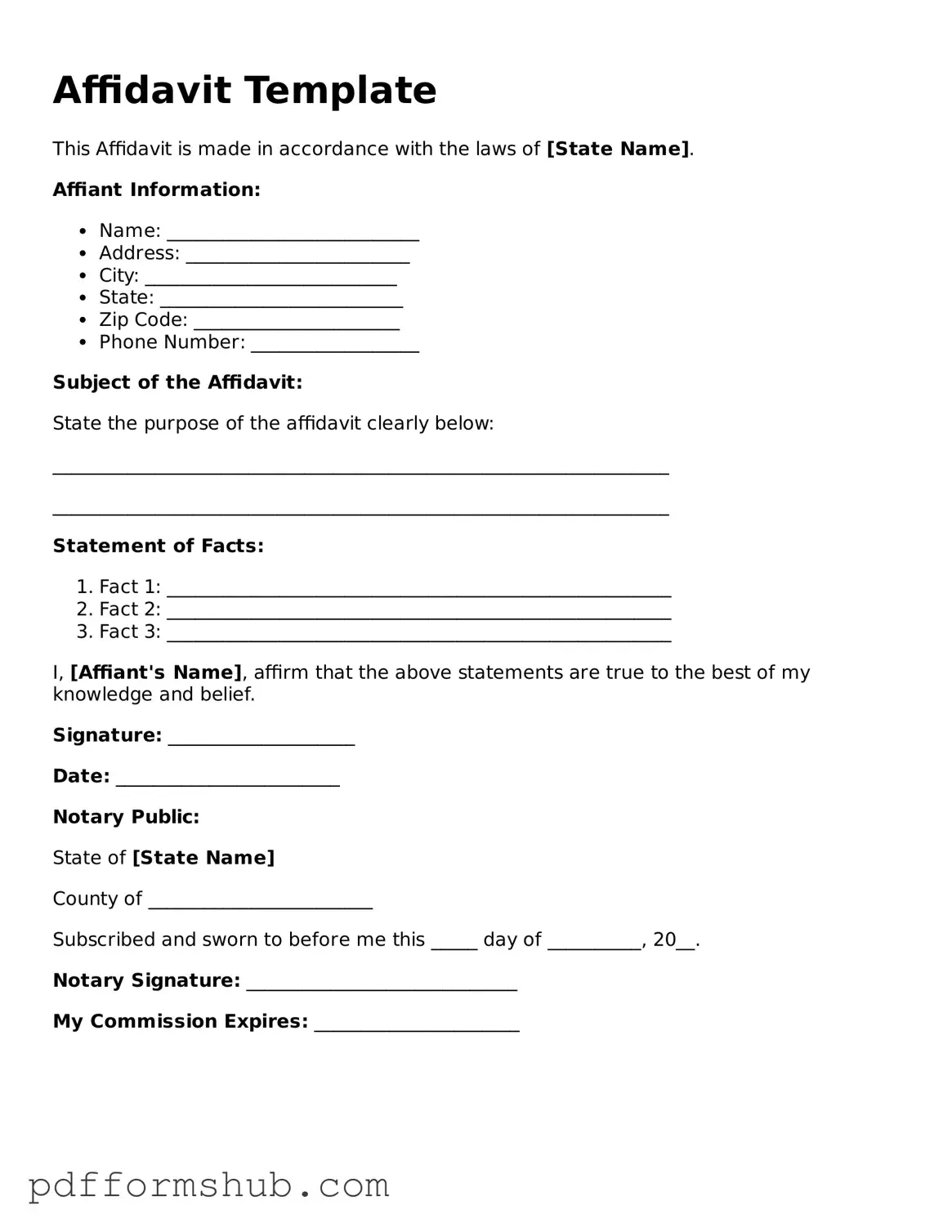Valid Affidavit Form
An affidavit is a written statement confirmed by oath or affirmation, used as evidence in legal proceedings. This form serves as a powerful tool, allowing individuals to present facts and assertions under penalty of perjury. Ready to make your statement official? Fill out the form by clicking the button below.
Customize Form

Valid Affidavit Form
Customize Form

Customize Form
or
Free PDF Form
Short deadline? Complete this form now
Complete Affidavit online without printing hassles.